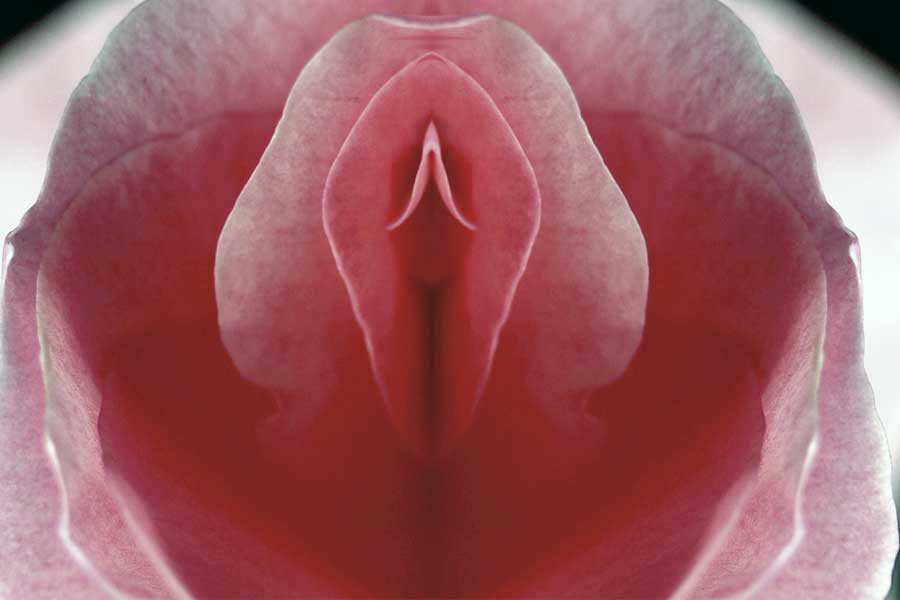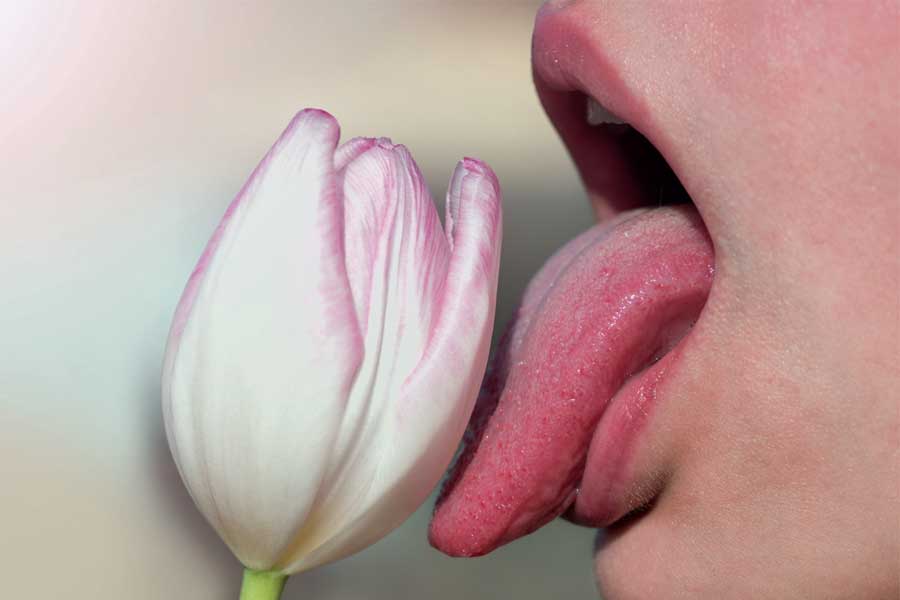Trusted for 25+ Years
Find The Gspot & Stimulate It

Dr. Lisa Lawless, CEO of Holistic Wisdom
Clinical Psychotherapist: Relationship & Sexual Health Expert
 G-spot Controversy
G-spot Controversy
Is There A G-spot?
Before we get into the details of this article, let's first address that for the sake of simplifying, this article will be addressing cis women. The first thing we will address is if there is a G-spot, as there is a lot of controversy about whether it even exists. To quickly answer that question, yes, there is such a thing as a G-spot.
Do All Women Have A G-spot?
The next common question is, do all women have one? Now, one would think that would be without controversy considering it is as similar as asking if all men have prostates, but there is still a lot of confusion because of conflicting information. For example, Cosmopolitan magazine promoted the G-spot for many years, and then in 2020, ran an article called "The G-spot Doesn't Exist." In it, the author apologizes on behalf of the magazine, saying they were wrong. Meanwhile, you have many sex experts, including physicians insisting there is a G-spot. These types of contradictions may make it confusing to know what is accurate.
The truth is that it depends on definitions as well as looking at context rather than one aspect. Just like all males have a prostate, all women have the equivalent known as a female prostate, which is what the G-spot consists of, along with a clitoral structure, and both of those most definitely exist in all women.
Is There Such A Thing As A G-spot Orgasm?
The next controversial question about the G-spot is if there is such as thing as a G-spot orgasm. Essentially, all orgasms originate in the clitoris even if it is not stimulated, so technically, there is no such thing as a G-spot orgasm because the orgasm is not taking place there. However, if you wanted to say that orgasm occurred due to G-spot stimulation, then you could possibly refer to that as a G-spot orgasm.
Can All Women Orgasm From G-spot Stimulation?
It is important to note that many women cannot achieve an orgasm with stimulation only to the G-spot area (female prostate and clitoral structure. This is because the head of the clitoris (eternal part of the clitoris) is the equivalent of the head (glans) of a man's penis, and that is where most nerve endings are located. Thus, the majority of women require stimulation to the head of the clitoris to orgasm just like most men need stimulation to the head of their penis. Please read our Clitoral & Vaginal Orgasm Guide for more information about this.
When Was The G-spot Discovered?
The G-spot is a nerve-dense erogenous zone about 2 to 3 inches inside the vaginal canal, along the front wall. It was first referred to as such in the 1950's article found in the International Journal of Sexology. Dr. Ernest Gräfenberg wrote about the sexual sensitivity found along the anterior vaginal wall. Later, it became more widely known as the G-spot. Later, it was also referred to as the G-Area or G-Region.
The first documentation of the G-spot may have been through a Chinese book called the Palace of Yin. The term referenced means womb, but it specifically refers to the location in a woman's body where there is an orgasmic secretion called moonflower medicine. This may mean the vaginal secretion from the female prostate (paraurethral glands), known as female ejaculation. No further research was done again until Perry and Whipple's 1978 study confirmed Dr. Gräfenberg's article.
While many people call it the G-spot, Gräfenberg never referred to it that way; rather, he just described it as a sensitive, sexual area. In his work, he cited that women have many places on her body that can promote sexual arousal beyond the clitoris.
What Is The G-spot?
The G-spot is an area in the vagina where the clitoral legs and female prostate are interconnected. The clitoris can provide pleasure and arousal when stimulated externally or internally, filling the female prostate with a prostate fluid. The G-spot is not a physical organ; rather, it is a region where the clitoris and female prostate converge and is an area where it is quite pleasurable to receive stimulation.

The Role Of The Clitoris
Most people do not realize that the part of the clitoris that is viewable externally is just a small part of the complete clitoral structure. The external part is just the tip (head) of the clitoris which has a wishbone shape with clitoral legs that internally wrap around the vaginal walls.
Many people erroneously think that the complete clitoral structure was discovered in 1998 by a well-known Australian researcher and urologist, Dr. Helen O'Connell. She had used microdissection of cadavers and magnetic resonance imaging of living women to show the complete clitoris structure and published her findings in 2004. However, the complete clitoris structure was not discovered in 1998; rather, it was simply the first time magnetic resonance imaging had been done.
The complete clitoral structure was seen in textbooks that provided detailed sketches, including nerves and vessels, as early as 1844. However, because of a lack of understanding of its function, it was often omitted from OB-GYN and anatomy books because it was not considered necessary. However, it is shown in its entirety in the textbook "Gray's Anatomy: The Anatomical Basis of Clinical Practice" and Frank Henry Netter's book "Major Anatomy of the Female Genital Tract," published in 1948. It is found today in the textbook "Te Linde's Operative Gynecology," published in 2019.
After having done the magnetic resonance imaging, it is believed by Dr. Helen O'Connell that the G-spot is connected to the vagina, clitoris, and urethra to make up a clitoral complex. For more information about the clitoris, please see our guide The Clitoris & How To Stimulate It.
The Female Prostate
The female prostate consists of two small ducts, each the total size of a kernel of corn with a pin-hole-sized opening. They are located along both sides of the urethra, toward the front part of the vaginal wall. They were first described by Dr. Alexander Johnston Chalmers Skene in the late nineteenth century, which is why they are sometimes referred to as the Skene's glands. They have also been medically referred to as the paraurethral, vestibular, and periurethral glands. On a side note, the Skene's glands were officially renamed the female prostate by the Federative International Committee on Anatomical Terminology in 2002.
Bordering the clitoral legs, they are similar to the male prostate, which, when stimulated, creates pleasure and secretes a similar fluid. These glands, along with the clitoris, create a network of sensitive nerve endings that connect in a particular area inside the vagina which is known as the G-spot area. Some medical professionals consider the female prostate to be the G-spot, while most consider them part of it. These glands contain antimicrobial substances that may help prevent urinary tract infections (UTIs), ideal for added protection during sexual activity.

The G-spot is an area that is between a quarter and a silver dollar in size. It is located about 2.5 - 3 inches on the top side of the internal vaginal wall. When stimulated, it is a source of rich, deep sexual pleasure. Like the prostate in males, the female prostate can ejaculate during an orgasm, and the liquid may squirt or gush out. This is called female ejaculation.
G-spot Sensitivity
It is important to note that some women are not as sensitive to stimulation in their G-spot area as others, and some may prefer more direct clitoral stimulation as a means to achieve sexual stimulation and orgasm.
Controversial G-spot Research
In the Nature Reviews Urology Medical Journal, Emmanuele A. Jannini, an Italian professor of endocrinology and sexology, released a very small study using ultrasound to scan the G-spot area in twenty women. He scanned nine women who claimed to experience vaginal orgasms and eleven who said they didn't.
In his study, Jannini determined that the vaginal tissue was thicker in the front vaginal wall in women who had disclosed that they achieved vaginal orgasms. The theory then became that women with more prominent G-spots climax from stimulation to it more easily. He said, "Women without any visible evidence of a G-spot cannot have a vaginal orgasm."
Problems With This Study
Jannini never indicates what he considers to be the G-spot, and one is left to assume that he believes the thicker vaginal tissue demonstrates the presence of a G-spot. Most medical practitioners would not define the G-spot as dense vaginal tissue; instead, it is where the clitoral legs and female prostate meet under the vaginal tissue.
If we agree that the female prostate and the clitoral network make up the G-spot, and because all cis women have a female prostate and clitoris, it is only fair to say that all women have a G-spot. While some women have thicker tissue in front of the female prostate, making its presence more pronounced and easier to find, others with less dense vaginal tissue also have a female prostate and a clitoris.
What Was Missed
It may just be that having denser tissue allows more pressure when a penis, finger, or sex toy is pressing against the G-spot. Therefore, it would logically make sense that those women with more tissue in front of the female prostate would be more prone to vaginal orgasm than those with less tissue.
Another critical factor Jannini seemed to overlook is that many women have difficulty getting aroused in a clinical setting. This would make it challenging to locate the G-spot during medical research because unless the female prostate is engorged with fluid from sexual arousal, one may not be able to feel it upon examination.
G-spot Variables
The overall sensitivity of the G-spot, the thickness of vaginal tissue surrounding it, and the size of the female prostate are all variables as to how able a woman will be to orgasm from stimulation to it. A woman will have to determine if she has high or low sensitivity and base sexual stimulation on how her body responds. Should she not find as much pleasure through G-spot stimulation, it can certainly be enhanced with direct clitoral stimulation at the head of the clitoris.
Similar To Men's Sexual Pleasure
Because we know that the clitoris is the equivalent of the head of the male penis (specifically the frenulum), it is easy to understand that it is vital for sexual stimulation. Stimulation to the female prostate is on par with stimulation to the male prostate. While prostate massage can be arousing and produce orgasms in men, it is far from the intensity of stimulation to the head of the male penis. It really is not difficult to understand when you put it in terms of men's sexual pleasure, which has received far more study and attention when compared to the research of women's sexual pleasure.
Women Can Discern Parts Of The Clitoral Complex
A Rutgers University study showed through an MRI test that the cervix, clitoris, and vagina stimulated distinct areas of the women's sensory cortex in her brain. Interestingly, each woman's brain sensed the specific stimulation of each region, including the area of the vaginal wall where the G-spot is located.
Female Ejaculation
Female ejaculation has been a controversial subject when it comes to the G-spot. With some claiming that the G-spot does not exist, there have also been those claiming female ejaculation is not real and is simply urination. However, female ejaculation is real and comes from the female prostate. How much prostate fluid comes out is the real question. Explore what female ejaculation is, how it works, why it occurs, and how to do it through our guide on How To Female Ejaculate.
How To Locate The G-spot
A woman may lay on her back and bring her knees up to her chest. You can use your fingers to feel for it from this position by pressing up into the area. If you have difficulty reaching it, you might want to use a G-spot style dildo to help you. One of the easiest is a wand vibrator with a G-spot attachment as the long handle allows you not to reach down as far.
You can also have a partner use their fingers to press upward into the area. There are, of course, other positions that you can get into, such as the doggie position (on all fours); however, it may be more accessible for women to turn upside down on the bed and put their feet up against the headboard to hold the position while they search for it and learn to stimulate it.
Also, see our guide Sex Toys For Disabilities for helpful tips for those who have mobility issues or disabilities that can make sexual stimulation more challenging.
How To Stimulate The G-spot
The best way to find it is to use fingers, remembering that the G-spot responds more to pressure than just a superficial rubbing. Moving your fingers up into the G-spot can provide enhanced pleasure and intensity of sexual arousal. Using your finger in a 'come here' motion is the most common way to stimulate the G-spot; however, other finger techniques can work as well. For more on this, please see our Fingering Tips For The Vagina.
Finger Fatigue
As your fingers may become tired after doing this for a while, you can opt to use a finger vibrator, G-spot vibrator, or G-spot dildo in addition to the possibility of penile penetration as a way of providing continued stimulation to her and relief for your fingers. G-spot vibrators also help stimulate blood flow to the area and make sensations more pleasurable.
Most Women Do No Have G-spot Orgasms
Considering that 81.6% of women don't orgasm from vaginal penetration alone, this would mean that integrating stimulation to the head of the clitoris would be much more effective and reliable in achieving an orgasm. This may also account for why so many women feel they must fake orgasms. For more information on optimal clitoral and vaginal stimulation please see the Clitoral & Vaginal Orgasm Guide.
Thus, having a G-spot sex toy with a clitoral vibrator (clitoral arm) to help directly stimulate the clitoris is ideal. These are often referred to as dual-action vibrators or rabbit vibrators. Sex toys that can stimulate the clitoris directly during intercourse are seen through c-shaped couples' sex toys designed for intercourse and vibrating penis rings.
See more about these sex toy options through our article Couples Sex Toys For Intercourse.
Have A Clitoral Orgasm Before Penetration
Because it is so challenging for most women to have an orgasm without direct stimulation to the head of the clitoris, one way a woman may more easily experience a vaginal orgasm is to have a clitoral orgasm before having penetrative sex. Having a clitoral orgasm first allows the clitoris to be engorged and erect. In addition, her vaginal walls will be engorged, and the female prostate glands will be filled with fluid. With her vulva, clitoris and vagina fully aroused, having penetration at this point may make her orgasm again without the need for direct clitoral stimulation. It could also mean she would require less clitoral stimulation depending on her specific needs.
What Is A G-spot Sex Toy?
A sex toy specifically designed for the G-spot will come in various shapes and sizes. Some are designed to be used with a partner, while others solo. The key to a sex toy being G-spot friendly is a curved and bulbous tip much like that of a prostate massager.

G-spot Stimulation Through Penetration
During intercourse, a woman may or may not achieve orgasm via her G-spot alone. It depends on the level of arousal, positioning, penis shape & size, vaginal shape & size, and sensitivity to G-spot stimulation. Sexual positions that help put pressure on the G-spot are helpful. Sex pillows that raise the pelvis are known for helping couples with these types of positions.
In Closing
The G-spot is a pleasurable area within the vagina, regardless of its sensitivity or prominence. Enjoying stimulation to it regardless of having an orgasm or experiencing female ejaculation is a wonderful part of enjoying the beauty of female sexuality.





